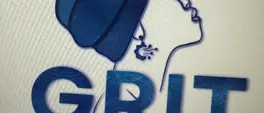Tips to survive Black November, 'where dopamine meets discounts'
Tasleem Gierdien
3 November 2025 | 12:51'In a society that's marked by high inequality and terrible financial strain, the promise of gaining something feels quite urgent,' says Dr Roze Phillips, an associate of the Centre for Business Ethics at GIBS Business School.

Photo: Pixabay/un-perfekt
November marks the arrival of Black November, a month when deals are everywhere and spending plans kick into high gear.
Dr Roze Phillips, an associate of the Centre for Business Ethics at GIBS Business School believes "it's a perfectly engineered month where dopamine meets discount and it's a fascinating case study in how digital systems shape what we want, when we want it and how fast we actually act on our impulses".
"The future isn't just about technology, policy or ethics, it's probably more about human behaviour and few things show that better than Black November."
WHAT'S HAPPENING IN THE BRAIN WHEN WE SEE DISCOUNTS?
Studies in neuroscience show that it's all about dopamine, says Phillips.
"It's all about the dopamine in the brain, it's the brain's drug for motivation and it doesn't surge when we get the reward, it surges when we anticipate it."
"Dopamine in your brain doesn't care what the chase is about, it just loves the chase. The brain gets high on anticipation. Once you own the shoes or new golf clubs then dopamine quiets down and reality moves in and that's why so many of us have closets full of clothes and shoes and still feel the urge to buy more. The thrill was never in the owning, it was in the chasing,"explains Phillips.
To back this up, she says Stanford University proved that anticipation lights up pleasure centers in the brain long before we get/own the thing we have been anticipating.
"The pain of losing something is twice as strong as the joy of gaining it. So when you see there's only three left, that's not information, it's like a threat signal in the brain," Phillips adds.
"The trick isn't to fight the chemistry, it's to understand it. If you know that dopamine is driving the bus, you can at least decide when to take the wheel back, especially in Black November."
THE ROLE OF ONLINE SHOPPING AND BLACK FRIDAY
"Digital makes it effortless, you don't need to queue outside stores anymore, you just need algorithms. Digital commerce isn't only about getting you to buy, it's also about learning how you buy... every click, every scroll, every abandoned cart teaches the system to predict your next move."
"It's a double win for retailers, they get the sale and the data... in business-speak, we call it, hyper-personalisation and AI is what makes it possible, every algorithm is learning to know you better than you know yourself so best you have your defences up."
WHY BLACK FRIDAY FEELS IRRESISTIBLE
The psychology behind days like Black Friday is universal but South Africa's context amplifies it, argues Phillips.
"In a society that's marked by high inequality and terrible financial strain, the promise of gaining something feels quite urgent."
"Stats SA's 2024 data shows that low savings and high spending on short-term rewards like gambling has become the order of the day. Gambling and online gambling is growing by leaps and bounds... it's behavioural economics.
"When the future feels unstable and uncertain, the present becomes everything and both gambling and flash sales run on this variable reward schedule, that unpredictable chaos that keeps that dopamine in your brain fiery, so each time you see, "oh, you saved R300", it mimics a near-win scenario at a casino.
"That anticipation, not the ownership, is what drives that pleasure and South Africans do need a bit of pleasure, given the struggles we go through. For those few seconds, you're the hero in the system that usually outplays you."
SURVIVING BLACK FRIDAY
Phillips does not argue against indulging in Black November but rather consuming consciously which is all about being aware of your spending.
"It's about staying awake, especially in November, in a world that really is designed to keep us clicking.
"
"It's worth investing in conscious awareness because consciences can't really be automated so maybe learn a little about how things work so you are better prepared to not just act on your impulses for what you want but maybe usethe month for what you need."
"Conscious consumption is still consumption, it's just buying with your eyes wide open."
IN OTHER PRACTICAL TIPS:
Pause before checkout:
A short pause cools the dopamine rush that drives impulse buying. Research from Duke University shows that a brief delay before making a purchase can cut impulsive spending by up to 40%. Step away, take a breath, and give logic time to catch up with emotion.
The best bargain isn’t a sale, it’s paying off debt:
Credit is the most expensive thing you can buy. Every extra dollar you put toward your mortgage, car loan, or insurance policy is money you’re investing in freedom. Paying down debt is the ultimate discount on your financial stress.
Practice JOMO, the Joy of Missing Out:
Mute those Black Friday notifications and take a break from scrolling. When you step away from the noise, you reclaim your focus and your time. The real joy of missing out is getting your attention — and your peace of mind — back.
Abundance is in sense, not cents:
Use your power to choose consciously, not on autopilot. If you’re budgeting this November, focus on essentials, toilet paper, nappies, cleaning supplies, the things that truly sustain you. Real abundance comes from thoughtful decisions and common sense, not from chasing every deal.
"Remember that awareness is real wealth. If all else fails, if you have to spend, spend time... spend time with loved ones, spent time helping a stranger, spend time walking in nature, spend time on your own growth and your peace of mind. The truth is, the most valuable things, they don't fit in a shopping trolley, they don't fit in a basket and they certainly don't fit in a digital shopping cart."
To listen to Phillips in conversation with Clarence Ford on CapeTalk's Views and News show, click below:
Get the whole picture 💡
Take a look at the topic timeline for all related articles.

















